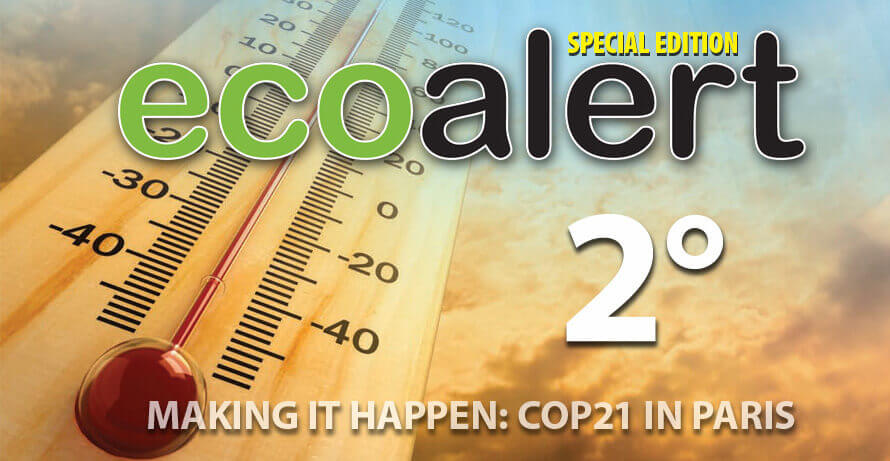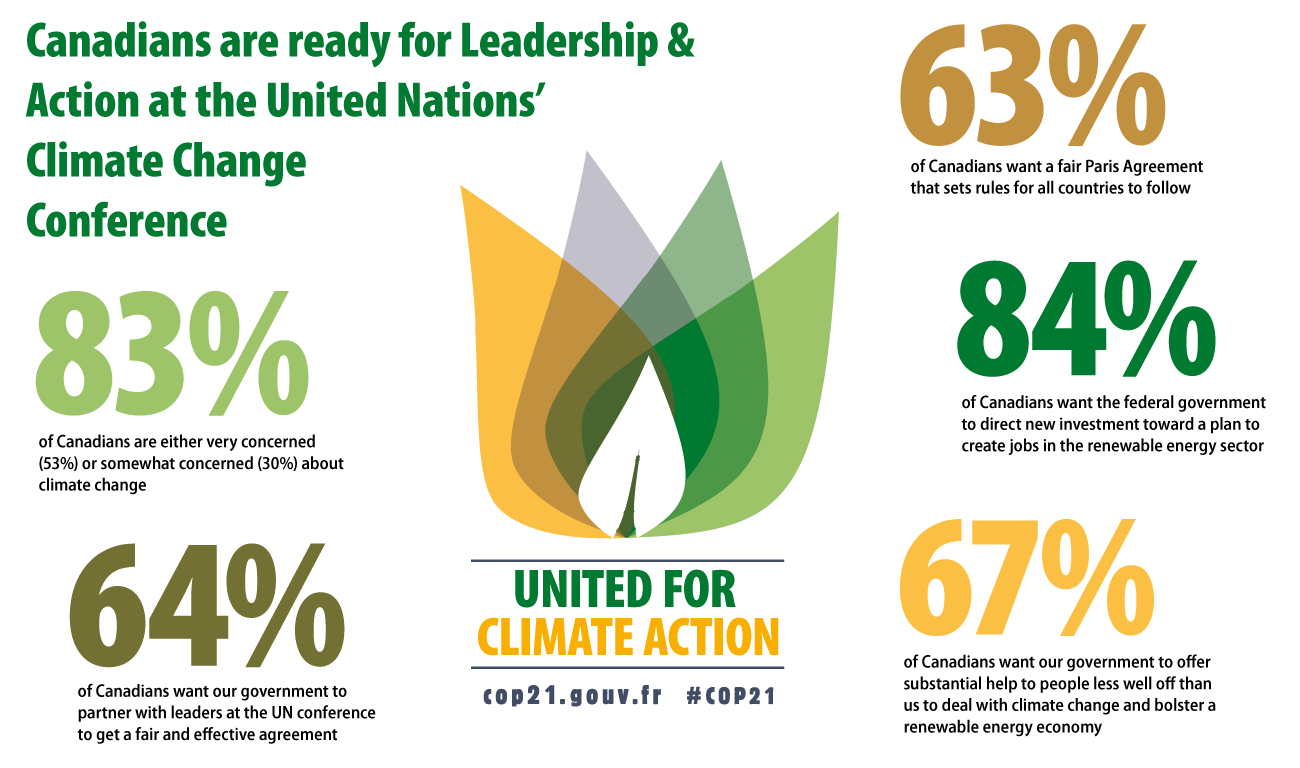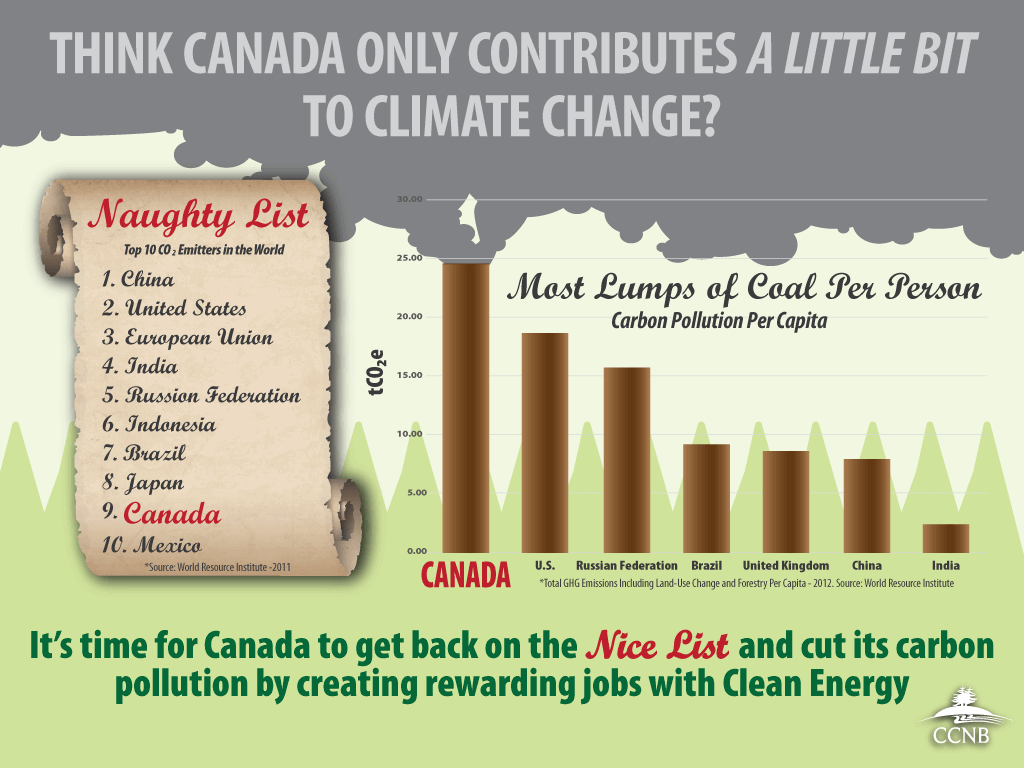As the United Nations Climate Summit kicks into high gear for Week Two in Paris — where government ministers take over the negotiations — here are some highlights of what took place last week as COP21 got underway.
Disagreements abound
The first week of climate talks during COP21 in Paris resulted in a draft climate agreement cluttered with brackets and riddled with competing opinions. Despite a myriad of meetings there are still huge divides between countries on several key points. One of the biggest sticking points is whether the agreement should aim to limit global warming by 2 degrees or 1.5 degrees. Small island nations at severe risk of flooding are leading the push for a 1.5 degree target, but nations like Saudi Arabia and India are adamant we should stay the course with the former target. Other disagreements to date are almost all related to defining the obligations and expectations of rich and poor countries. 184 countries submitted climate plans prior to the summit, but how to anchor those pledges in a legally-binding deal remains to be sorted out. Parties also disagree about requiring countries to properly report their emissions and track progress toward their national target. Now in Week 2 of the summit, it’s up to government ministers to take the reins of the negotiations and whittle some of these brackets and conflicts into an agreement that works.

‘New Canada’ at COP21
“Canada is back, my good friends. We’re here to help.” These words, spoken by Canadian Prime Minister Justin Trudeau during the opening of COP21, were met with applause from dignitaries and political officials attending the opening of UN Climate Summit in Paris. Trudeau said Canada would be a “purveyor of solutions” at the climate talks and promised to proceed with policies “based on the best scientific information and advice” in contributing to a low-carbon economy worldwide. Noting Canada was ready to take on a new leadership role on the international stage, Trudeau said his government not only sees climate change as a challenge, but also as “an historic opportunity: an opportunity to build a sustainable economy based on clean technology, green infrastructure and green jobs.” Now, we’ll see how serious the Prime Minister was over the coming days as negotiations taper toward a final agreement. For now, Canada still has yet to address three main issues: our overall reduction target and when we’ll achieve it; whether the oil sands will be included in the nation-wide GHG reduction plan; and what exactly emissions would cost under a cap-and-trade system.
Canada makes big Climate Fund move
Just before Paris got underway, Prime Minister Justin Trudeau announced Canada would contribute $2.65B to the Green Climate Fund, a fund set up to help developing nations invest in renewable energy and avoid further fossil fuel development. The move puts Canada second only to the U.S when it comes to the overall amount of money (in U.S. dollars) pledged for the fund. Observers also praised that Canada’s commitment to step up — increasing the pledge substantially from the $300,000 offered by the previous federal government — would put some much needed pressure on other wealthy nations to re-up or make a first-time committment to the fund during the UN climate summit. In the first week at Paris, Canada was joined by 10 other of the world’s most developed countries in committing to financially support the most vulnerable countries adapt to climate change impacts and move toward renewable energy.
Vulnerable countries call for more ambitious target
A group of countries known as the Climate Vulnerability Forum is pushing for the Paris climate agreement to include a new 1.5 degree global warming target. The group argues the 2 degree limit (which became the formal target of global climate negotiations in 2010) is insufficient to protect the most vulnerable nations. “Warming has now reached 1C,” said the Alliance of Small Island States, a group of 44 low-lying island and coastal states from around the world, in a statement. “At the same time, our islands are experiencing the impacts of an ongoing extreme El Niño and the science is telling us that such events will occur twice as often over the 21st century if we do not act strongly and decisively. Additional magnitudes of warming will only increase the risk of such severe, pervasive and irreversible impacts.” In addition to a new legally protocol to bring warming below 1.5 degrees, the group is also calling for a 100 per cent renewable energy future by 2050. French foreign minister Laurent Fabius indicated the host nation is open to adjusting the agreement to accommodate the 1.5 degree target.
Irresistible appetite for action
Last weekend, as the UN summit prepared to get underway, 785,000 world citizens marched for climate action at events around the globe, including here in the Maritimes. And another 3.6 million people have signed a call for a meaningful agreement that was delivered to leaders in Paris last week. These actions and gestures should leave no doubt in leaders’ minds that people support a bold and ambitious plan coming out of Paris.
Don’t think we have a role to play?
The idea that Canada doesn’t produce enough pollution to justify bold action is, well, just plain wrong. The World Resources Institute ranks us at the No. 1 polluter per capita in the world, and James Hansen, the former NASA scientist who brought climate change to the world’s attention in 1988, recently released a report showing Canada is fourth in terms of cumulative per capital responsibility for global emissions. Why did our country send such a large delegation to Paris? Because we have a big role to play and a duty to make things right.
Big money backing big change
The Breakthrough Energy Coalition was launched by Bill Gates, Richard Branson and other high profile investors just prior to the UN summit getting underway, with the goal of investing billions of dollars to advance clean technology and renewable energy. Canada is one of 20 participating countries that has committed to doubling its investments in clean energy research and development over the next five years. More on the good news front, a coalition of countries — led by India and France — have come together to mobilize 100 countries and $1 trillion in investment for solar energy projects!
Here at home
Clean energy jobs coming to Manitoba
Alright Manitoba! The Prairie province will create 6,000 green jobs in the next five years and join Ontario and Quebec by introducing a cap-and-trade program for its biggest emitters. Premier Greg Selinger made the announcement on Thursday (Dec. 3) as part of the province’s plan to combat climate change. It also includes GHG reduction targets aimed at dropping levels by one-third by 2030 — within 15 years — and be carbon-neutral by 2080.
NB Power CEO ‘convinced’ climate change factor in recent outages
Speaking to CBC’s Information Morning on Monday, NB Power’s president and CEO said climate change has played a role in numerous and prolonged power outages in the southern part of the province over the past few years. “We are convinced now that climate change has had some impact,” Gaetan Thomas said. Read the article here. Hopefully this acknowledgement will spur our public utility to take a more ambitious approach to phasing out coal (right now, we’re on track to get rid of coal-fired electricity in NB by 2045 – 30 years slow than Ontario, 20 years later than all of the U.K., and a full 10 years slow than even Alberta)!
Read more about COP21 and climate change in our new special edition of EcoAlert
Part of our Renewable Solutions NB Project



